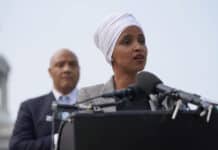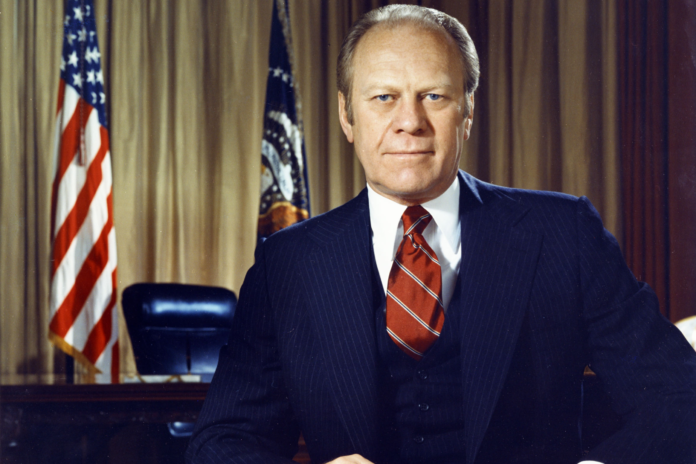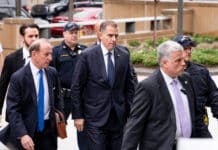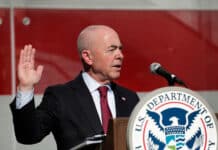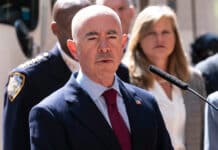Nearly a half-century ago, Gerald Ford addressed the nation for the first time as president by claiming, “Our long national nightmare is over.”
He also spoke of “restoring the golden rule to our political process” and “letting brotherly love purge our hearts of suspicion and of hate.”
Media members scoffed at the Yale Law graduate, talented athlete, World War II lieutenant commander, and former House leader, but Ford was the man America needed after Watergate. The Midwesterner healed wounds, as much as possible, with goodwill and common sense.
The most controversial move Ford made was bequeath President Richard Nixon “a full, free, and absolute pardon.” At the time, there was indignation and disquietude over the decision.
Though the journalistic elite did not wholeheartedly welcome the pardon, it was necessary for national healing. Ford may have lost the 1976 presidential election because of it, yet he did what he believed was best for the country. And though some mocked him, Ford is now considered a candid statesman who rose to the occasion.
We again have a new president, with decades of Washington experience, who many believe is gaffe-prone, but also capable of occasional level-headedness. Joe Biden promised us compassionate government and some form of “normalcy” in an even more hyper-partisan era.
While policies and communication so far haven’t been unifying, we can’t emerge from this “dark winter” if the nation is caught up in the imbroglio of a second impeachment circus.
Why prolong the current national nightmare, especially when it’s clear there are not enough votes in the U.S. Senate for a conviction?
All 50 Democrats and 17 Republicans must vote for conviction to occur. It now appears only five or six of the latter would. Especially when Democrats predictably overreach, acquittal is therefore a foregone conclusion.
A conviction is likely to be challenged on constitutional grounds anyway, and the trial sets a poor precedent.
While various scholars differ on technicalities, a majority-originalist Supreme Court is unlikely to view impeachment power extending to former presidents.
“Impeachment after removal makes no sense since removal is the only penalty called for in Article 2, and Trump is already gone,” a D.C. lawyer told Alpha News Sunday. “It seems like an abuse of checks and balances to then limit Trump from running again if the people want him.”
This doesn’t excuse former President Trump’s conspiracy-fueled attempts to rile up crowds Jan. 6 at the Capitol and reverse the election. But does the spectacle of punishing the 45th president, almost a month after he left Washington, help anyone other than seething radicals?
Democrat Sen. Tim Kaine recently suggested censure, noting a trial with a known outcome is a waste of time and resources. But there will not be a dozen additional Republicans inclined to send a warning shot to future presidents; most senators realize the trial starting today is a political calculation Chuck Schumer hopes will hurt the GOP enough that he can stay majority leader beyond 2022. Democrats also want the proceedings to end quickly so they can begin handing out $2 trillion of goodies.
Biden, Speaker Nancy Pelosi, impeachment manager Jamie Raskin, and intransigent congressional Democrats are faced with a Gerald Ford moment: Will they turn the page, or seek additional revenge and partisan rancor?
Let’s hope they listen to voters, and are sensible, akin to our 38th president.
(For more on President Gerald Ford, check out Fox Nation’s special that dropped last week.)
A.J. Kaufman
A.J. Kaufman is an Alpha News columnist. His work has appeared in the Baltimore Sun, Florida Sun-Sentinel, Indianapolis Star, Israel National News, Orange County Register, St. Cloud Times, Star-Tribune, and across AIM Media Midwest and the Internet. Kaufman previously worked as a school teacher and military historian.





